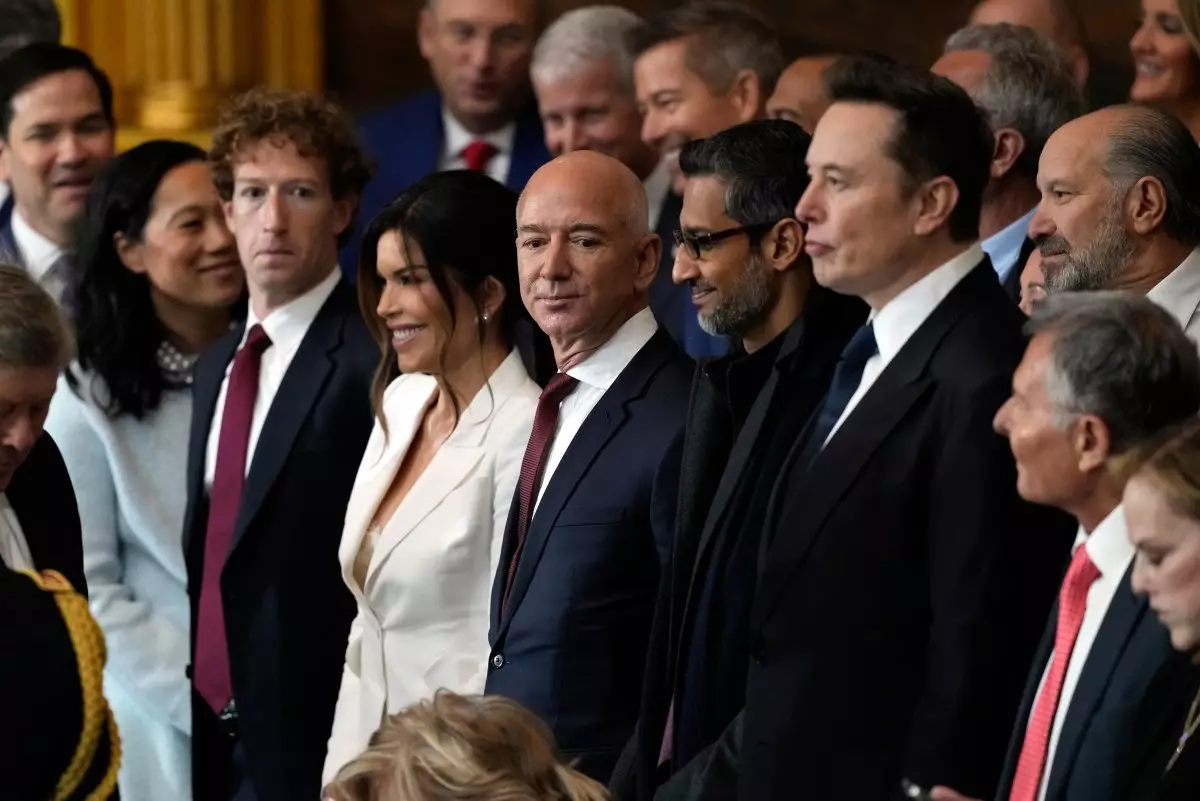In an era where technology is increasingly interwoven with our daily lives, the intersection of artificial intelligence (AI) and government influence has become a battleground for a larger ideological struggle. Recently, House Judiciary Chair Jim Jordan, a Republican from Ohio, initiated a notable inquiry that underscored this tension. His requests for communication records from 16 tech giants—ranging from Google to OpenAI—indicate a growing concern that powerful political figures might be exerting undue influence over AI companies to suppress “lawful speech.” With Jordan’s insistence on probing into potential collusion between the Biden administration and these tech titans, the seat of battle has shifted from conventional social media platforms to the rapidly evolving field of AI.
This inquiry isn’t merely a legal formality; it’s a strategic move deeply embedded in the ongoing cultural war between traditional conservative values and the increasingly liberal Silicon Valley. The emphasis placed on “censorship” in Jordan’s correspondence illustrates a narrative that has gained traction among many conservatives who believe that their ideologies are being stifled by the rising dominance of technology in our discourse.
The Implications of AI Regulation
The consequences of the inquiry should not be underestimated. The type of scrutiny directed at AI companies casts a long shadow over innovation, as businesses may feel pressured to change how they design and manage their AI systems to sidestep political controversy. Earlier this year, OpenAI made headlines when it restructured its training approach to ensure a diversity of perspectives within its AI models. This shift was framed as a commitment to company values, but critics argue it’s an act of self-preservation against looming political backlash.
Meanwhile, companies like Anthropic have promised their AI models would offer a broader range of responses to controversial inquiries. Yet, amid these changes, not all firms have reacted similarly. Google’s Gemini chatbot, for example, has been criticized for its rigidity in avoiding politically sensitive questions, raising larger concerns about the degree of autonomy AI products should have in navigating complex socio-political topics.
As companies attempt to navigate this complex landscape, skepticism abounds. Can corporate interests remain unscathed while also adhering to during periods of heightened scrutiny? The blurred lines present in this ongoing debate do not just shape policy; they shape public perception and trust in technology.
The Absence of Key Players and What It Signals
It’s notable that one influential figure, Elon Musk and his AI company xAI, was conspicuously absent from Jordan’s inquiry list. Musk’s affiliation with the Trump administration and his vocal opposition to AI censorship bring an interesting dimension to his omission, suggesting that partisan allegiances might play a role in the inquiries made by government officials. This raises an important question: Is the scrutiny applied by lawmakers like Jordan truly impartial, or is it part of a calculated political maneuver aimed at rallying support amid cultural divisions?
The silence from major companies in response to Jordan’s letters further indicates a hesitancy to engage in this polarizing issue. Tech firms may fear that any admission or violation could place them in the crosshairs of potential legal implications or tarnish their reputation as neutral platforms. Such apprehension hints towards a larger issue of accountability and transparency in the rapidly expanding field of AI, which remains largely unregulated.
Navigating the Political Landscape of AI
As the 2024 U.S. election approaches, the implications of these inquiries will likely evolve in both scope and intensity. The narratives being formed now have the potential to significantly alter how AI technology is developed and utilized in public discourse. Many tech leaders, including those at Meta, have already faced accusations of succumbing to governmental pressure to suppress viewpoints deemed undesirable. The effectiveness of these “corrections” made by AI companies may be measured not just in technical prowess, but in their ability to balance productive dialogue and free speech against the considerable weight of political scrutiny.
In this atmosphere, the dialogue surrounding AI is not just an issue of technology but also one of democracy. How the tech community responds to this scrutiny and what regulations emerge will likely set the tone for the future development of AI and its profound influence on our society. As such, the stakes are incredibly high, and the outcomes remain uncertain.

